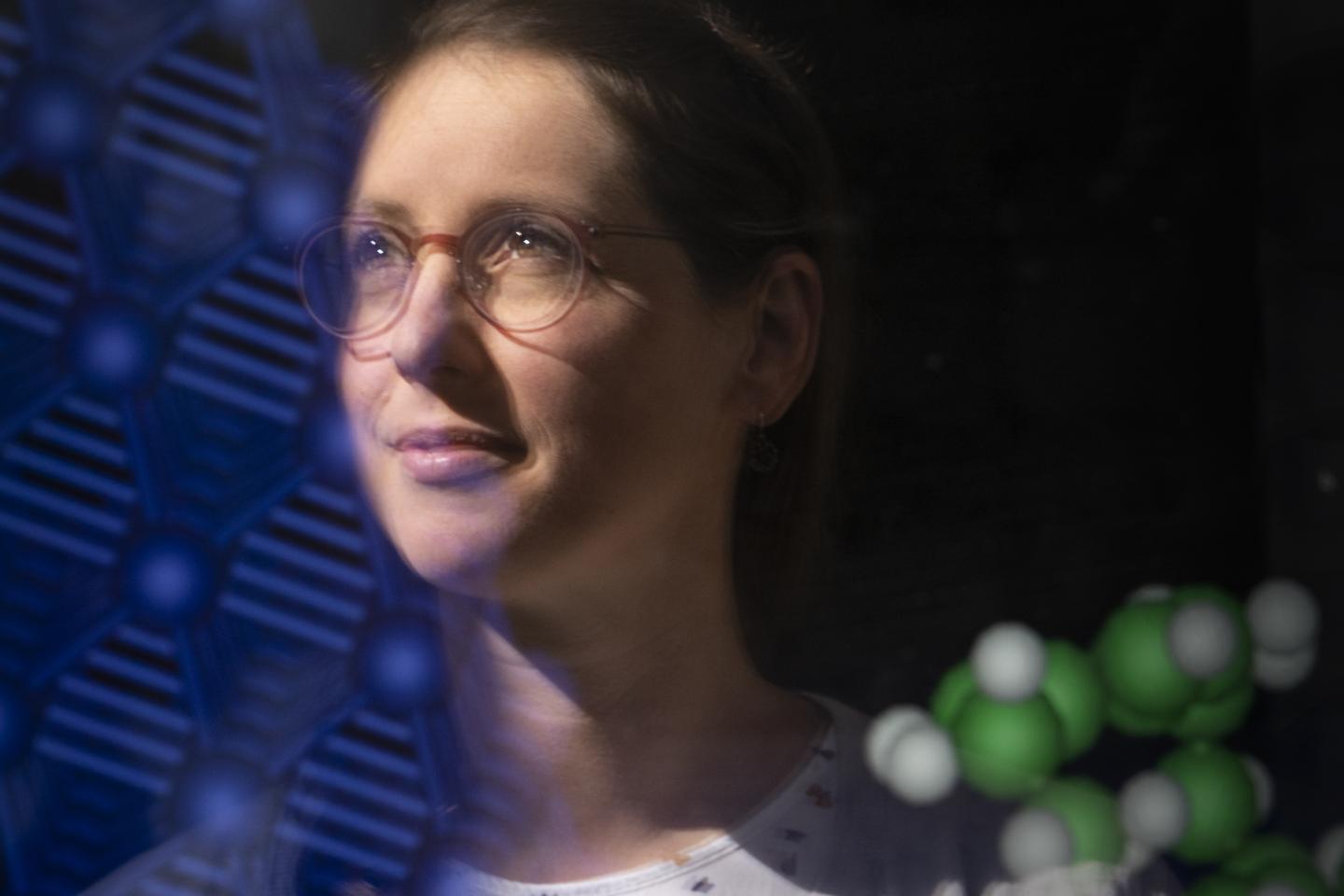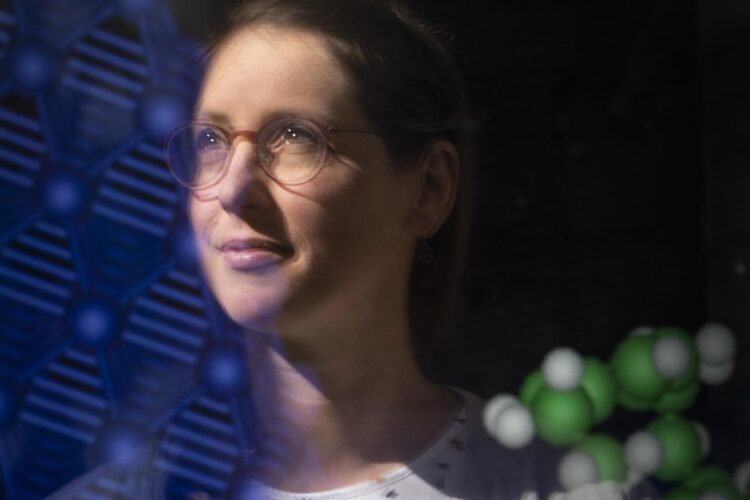Today, she receives the Ministry of Higher Education and Science’s prestigious Elite Research Prize 2021 as one of Denmark’s most skilled and talented researchers in her field.

Credit: Emilie Thejll-Madsen
Elite Researcher 2021: “I find solutions for problems that we don’t even have yet.”
Chemist Gemma Solomon is an explorer in the world of molecules, where among billions of molecules, she looks for precisely those that can help us in, among other things, our green transition, by using power and heat better. Today, she receives the Ministry of Higher Education and Science’s prestigious Elite Research Prize 2021 as one of Denmark’s most skilled and talented researchers in her field.
In a microcosm consisting of a nearly infinite number of molecules, the vast majority of which remain unknown to humanity, 40-year-old chemistry professor Gemma C. Solomon moves about in her day-to-day life. Through her work at the University of Copenhagen’s Nano-Science Center, Professor Solomon searches for new molecules that, with their unique properties, can help us humans solve some of what may be our biggest problems – both current ones, as well as those of the future.
Today, she receives the Ministry of Higher Education and Science’s Elite Research Prize 2021. In addition to the honor, the prize comes with one million kroner for her research and a 200,000 kroner personal honorary gift.
“I am enormously grateful to have received the award and for all the support that I’ve received from mentors, colleagues, the Department of Chemistry and the rest of the University of Copenhagen, ever since I came to Denmark from Australia in 2010. I couldn’t have done any of it alone,” says Professor Solomon.
Discovered the most “current-shy” molecule ever
In 2018, Solomon and her colleagues and collaborators managed to find the most current-insulating molecule ever identified. The result was revolutionary because it shifted the theoretical boundary for how electrically insulating something can be. This discovery in the field of quantum interference is one which could contribute to changing the way we create computers and other electronic appliances.
“In my work with electronic and thermal transport in molecules, I’m very interested in exploring how nature controls processes, so that we can learn from them and perhaps design molecules that are able to solve specific problems for us by transporting electricity and heat more efficiently and greenly,” says Gemma C. Solomon.
According to Professor Solomon, it is “just” about finding the exact molecules that, by way of their unique properties, can move at the fundamental physical boundary that our electrical circuits and other technology are at today.
“An enormous number of molecules exist in the world, so of course there are a few of them that can solve our problems. We just need to find them,” she says.
A city slicker gets lost in the woods
Studying the molecular world is basic research in its purest and most beautiful form. It is a world in which Solomon, using her classic, basic scientific method tries her hand thousands of times, where solutions to specific problems are landmarks on the horizon.
“Sometimes it’s like being a city slicker who is suddenly dropped off in the woods, with no idea about the life that exists there. But if a problem leads to a hint, one has a way into the world of molecules that might lead to greater understandings,” she says, adding:
“My research is basic research, so my discoveries are, to a large degree, possible solutions to problems that we don’t yet have. Actual applications may be 20 or 50 years away. But if I make my research open and accessible and tell the world about it, there may be a company or other researchers who can use it for something that I myself don’t yet have the fantasy to imagine.”
The Elite Research Prize is not Gemma C. Solomon’s first prize here in Denmark. In 2019, she received a silver medal from the Danish Academy of Sciences for an outstanding basic scientific achievement. And in 2020, she was admitted to the Royal Danish Academy of Sciences, where former prominent members include H.C. Ørsted, Niels Bohr, Marie Curie, Albert Einstein and Charles Darwin.
Facts:
Name: Gemma Claire Solomon
Title: Professor of Nano-Chemistry at the Department of Chemistry, University of Copenhagen
Born: 1980, Australia
Residence: Gentofte
Previous awards:
* Silver Medal, The Royal Danish Academy of Sciences and Letters 2019
* Löwdin Lecturer, Uppsala University 2016
* Torkil Holm Prize 2014, Danish Academy of Technical Sciences
* C. G and R. J. W. Le Fevre Student Lectureship 2005, Sydney University Chemical Society
* The Janet Elspeth Crawford Prize in Chemistry 2002, The University of Sydney
* The University Medal, The University of Sydney
###
Media Contact
Michael Skov Jensen
[email protected]
Original Source
https:/





